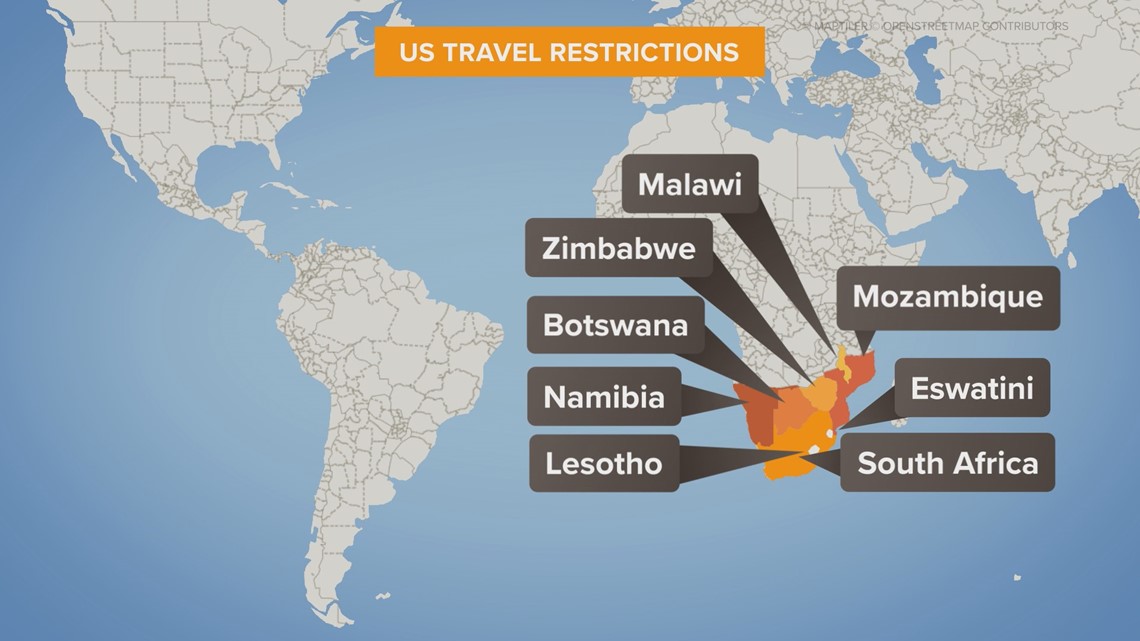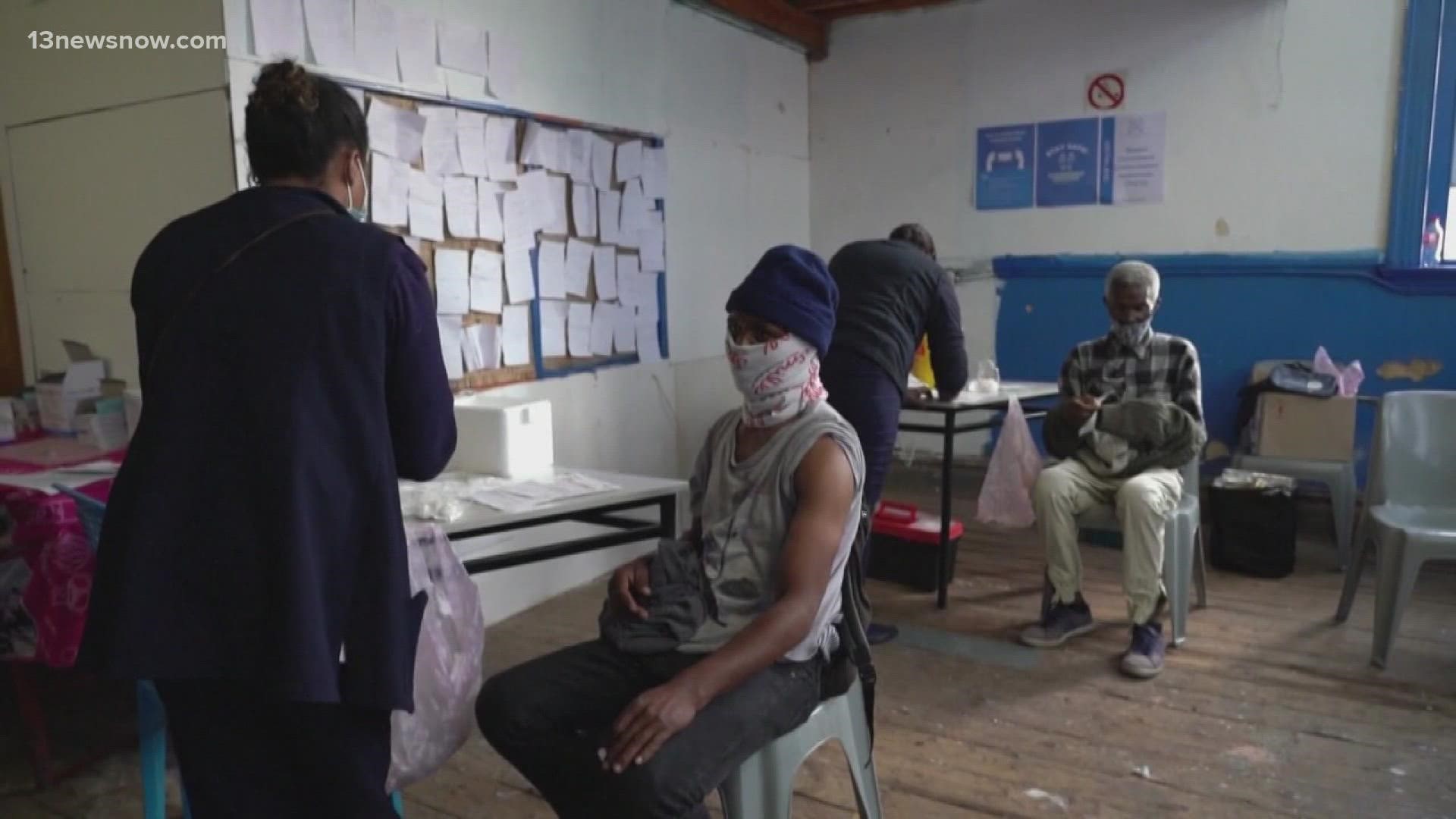VIRGINIA, USA — Researchers in South Africa are studying the B.1.1.529 variant, also known as Omicron.
"This variant has a large number of mutations and some of these mutations have some worrying characteristics," said Dr. Maria Van Kerkhove, COVID-19 technical lead with the World Health Organization.
So far, it's been linked to a spike in cases outside Johannesburg.
“That being said, we’re talking about less than 100 patients all told. So, there’s really a lot more that needs to be learned," said UVA Health Assistant Professor of Infectious Disease Dr. Patrick Jackson.
Dr. Jackson told 13News Now it's still unclear whether Omicron is more transmissible than the Delta variant.
Scientists could relay their findings over the next few weeks.
"We'll also learn more about what this virus means, in terms of the impact on our vaccines and some of our monoclonal antibody drugs," said Dr. Jackson.
The U.S. has not yet reported an Omicron case.
But as concerns grow, President Biden announced travel restrictions from eight Southern African countries to the U.S. This would take effect beginning November 29.
The ban would not apply to Americans and permanent U.S. residents.


Dr. Jackson said the measure of travel restrictions shouldn't be so much the focus.
"Unfortunately, by the time you recognize that a virus might be a concern, the virus is probably well-distributed around the world," he said. "And so, what's really important right now is for us to roll out rapid testing, have treatments available, increase vaccination rates and to support the scientists who made this discovery possible."
Health experts continue urging the public health measures — namely masks, social distancing, as well as boosters and vaccinations. Dr. Van Kerkhove said those have "never been more important."

